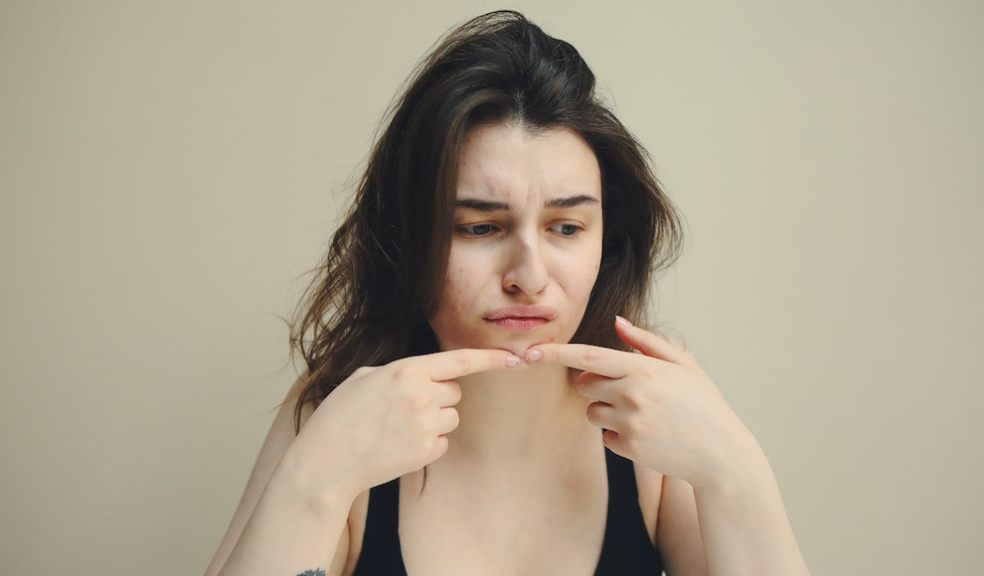
5 Common Skin Conditions and the Treatment Options Available
Living with skin conditions can be uncomfortable and can also affect your confidence when around others. However, addressing your skin conditions and finding out the cause for them can help to make them easier to live with. In this post, we’re going to cover some of the most common skin complaints, as well as what treatment options are out there to help make them easier to live with.
Eczema And Dermatitis
If you’re dealing with skin issues, eczema and dermatitis are two common conditions that might bring discomfort and irritation to individuals of all ages. Although people often use these terms interchangeably, there are subtle differences between them. Eczema is a chronic inflammatory skin condition characterised by patches of red, itchy, and inflamed skin. It can result from a mix of genetic and environmental factors, such as allergens, irritants, and a compromised skin barrier. On the other hand, dermatitis is a broader term covering various types of skin inflammation, including contact dermatitis triggered by direct skin contact with allergens or irritants, and atopic dermatitis, a type of eczema associated with allergic reactions.
Both conditions exhibit similar symptoms, such as redness, itching, and sometimes oozing or crusting. The main goal of treatment is to ease symptoms and enhance your overall quality of life. For tackling eczema and dermatitis, consider potential treatments like emollients and hydrocortisone creams that help moisturise and repair your skin barrier. You might also be prescribed topical corticosteroids to alleviate inflammation and itching, although these should be used under medical supervision due to potential side effects. Non-steroidal options like topical calcineurin inhibitors are also available. In severe cases, systemic medications like oral corticosteroids or immunosuppressants might be recommended.
Acne
Acne often emerges during puberty but can continue to bother you well into adulthood. The primary cause is the overactivity of sebaceous glands, building up in the skin’s follicles and causing clogs. Bacteria can then thrive in these clogged follicles, resulting in inflammation and the characteristic redness and swelling associated with acne. How severe your acne is can vary, ranging from mild outbreaks to more severe cases with painful cysts and nodules. Factors like genetics, hormones, and lifestyle choices can influence the frequency and intensity of your breakouts.
Over-the-counter topical treatments containing ingredients like benzoyl peroxide, salicylic acid, or sulphur can be effective for mild cases. These treatments work by reducing oil production, unclogging pores, and fighting bacteria.
For more severe acne, consulting a GP or dermatologist is recommended. They might prescribe stronger topical treatments, oral antibiotics to combat bacterial infection, or hormonal therapies to balance hormone levels. In cases of deep, painful cysts, your dermatologist could suggest procedures like drainage or corticosteroid injections to alleviate inflammation. Maintaining a consistent skincare routine that includes gentle cleansing and non-comedogenic products can also contribute to managing acne. However, avoid the temptation to over-cleanse or scrub your skin vigorously, as this could worsen the condition.
Psoriasis
This common skin disorder is characterised by the rapid buildup of skin cells, leading to the development of red, scaly patches on your skin’s surface. Psoriasis is not only a physical concern but can also impact your emotional well-being due to its visible nature. Although the exact cause is not fully understood, it’s believed to result from an immune system malfunction that triggers the rapid growth of skin cells.
These raised patches, known as plaques, can be itchy, painful, and even crack or bleed. They most commonly appear on areas like the elbows, knees, scalp, and lower back, but can affect any part of your body. The severity of psoriasis can vary greatly, with some experiencing mild, occasional outbreaks, while others may have more persistent and widespread symptoms.
Managing psoriasis involves adopting a multifaceted approach. While there’s no cure, various treatments can help alleviate symptoms and keep flare-ups under control. Topical treatments like creams or ointments containing corticosteroids, vitamin D, or coal tar can help reduce inflammation and scaling. For more severe cases, your doctor might recommend light therapy (phototherapy) using ultraviolet light, or systemic treatments such as oral medications or biologic injections that target specific immune responses. Lifestyle factors also play a role in managing psoriasis.
Maintaining a healthy diet, managing stress, and avoiding triggers like smoking and excessive alcohol consumption can help in keeping symptoms in check. Remember, psoriasis is a chronic condition, and finding the right treatment plan tailored to your specific situation might require some trial and error. Consulting with a dermatologist is crucial to determine the best course of action for managing your psoriasis and improving your skin’s appearance and overall comfort.
Hives
These raised, itchy welts on your skin’s surface can appear out of nowhere, causing irritation and concern. Hives are typically triggered by an allergic reaction to various factors, such as certain foods, medications, insect bites, pollen, or even stress. When your body releases histamine in response to these allergens, it leads to the characteristic red, itchy bumps that can range in size from small dots to larger patches.
One of the challenging aspects of hives is their unpredictability. They can appear and disappear within a few hours or persist for several days before fading away. This fleeting nature can make it challenging to pinpoint the exact cause. Managing hives involves identifying and avoiding triggers whenever possible. Keeping a journal to track potential triggers and the timing of outbreaks can help you identify patterns and make informed lifestyle adjustments. Over-the-counter antihistamines can provide relief from itching and help control hives.
If hives are severe or persistent, a doctor might prescribe stronger antihistamines or other medications to suppress the allergic response. In some cases, chronic hives can last for six weeks or more, and determining the cause can be more complex. Your doctor might suggest additional tests or refer you to an allergist or dermatologist for a comprehensive evaluation. If you’re experiencing severe symptoms such as difficulty breathing or swelling of the face and throat, seek medical attention immediately, as these could be signs of a more serious allergic reaction.
Rosacea
This skin condition appears as redness and uneven skin tone on the surface of the skin, especially in places on your face such as the forehead, cheeks, and nose. Rosacea’s exact cause isn’t fully understood, but factors like genetics and environmental triggers play a role. Exposure to sunlight, hot beverages, spicy foods, alcohol, and extreme temperatures can exacerbate symptoms, making you self-conscious about your appearance.
One of the primary symptoms of rosacea is the appearance of visible blood vessels on your face, accompanied by episodes of flushing and persistent redness. In more advanced cases, small, red bumps and pustules may develop, mimicking acne. Managing rosacea involves a multifaceted approach tailored to your specific triggers and symptoms. Avoiding known triggers, such as spicy foods and excessive sun exposure, is crucial in preventing flare-ups. Sunscreen with a high SPF and broad-spectrum protection can also help shield your skin from UV rays.
Consulting a dermatologist is advisable for an accurate diagnosis and personalised treatment plan. Topical treatments containing ingredients like metronidazole, azelaic acid, or brimonidine can help reduce redness and inflammation. In more severe cases, oral antibiotics might be prescribed to manage both inflammation and bacterial growth. Lifestyle adjustments, like choosing gentle skincare products and avoiding harsh scrubs, can help maintain your skin’s balance. Cosmetics specifically formulated for sensitive skin can conceal redness and provide protection. While there’s no known cure for rosacea, working closely with your healthcare provider can help you effectively manage its symptoms and prevent its progression.

















